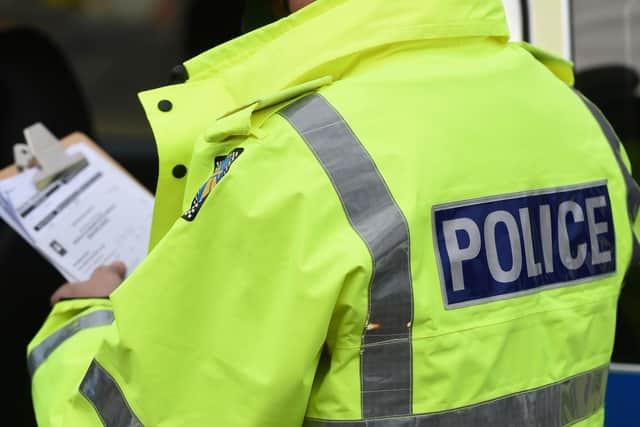How criminals are making peace with victims in Lancashire
and live on Freeview channel 276
Violent criminals are among those who escaped prosecution after Lancashire Police dealt with more than 800 crimes in six months through community resolutions.
Ministry of Justice data shows crimes including sexual grooming, drugs trafficking, burglary, child sex offences, robbery and arson endangering life were handled informally and not taken to court by Lancashire Constabulary.
Advertisement
Hide AdAdvertisement
Hide AdBetween April and September last year, the force used community resolutions to resolve 879 investigations.


They do not appear on criminal records, are not convictions and would not be disclosed to employers carrying out basic background checks with the Disclosure and Barring Scheme.
Designed to tackle low level offending, they can only be used where offenders admit guilt, with their use for serious crimes risking “undermining public faith in the criminal justice system”, according to the Criminal Bar Association.
While they are mostly used as intended for minor crimes like shoplifting or cannabis possession, Lancashire officers issued them for crimes that could otherwise have resulted in a spell behind bars.
Advertisement
Hide AdAdvertisement
Hide AdThey were used to close 1.4 per cent of cases, including 372 violent offences, seven weapons related offences and 10 sex crimes.
Criminal Bar Association chair James Mulholland QC said the disposals “had their place in a functioning justice system” but should not be used as an alternative to prosecutions for serious offences, adding: “Anything less and faith in law and order begins to crumble.”
He said the sheer volume handed out for a range of serious offences “that would invariably end up in the Crown Court if prosecuted” risked undermining public faith in the criminal justice system.
Forces across England and Wales - with the exception of Greater Manchester Police - closed more than 66,800 investigations with a community resolution in the same period, including 17,300 violent crimes.
Advertisement
Hide AdAdvertisement
Hide AdOf hundreds used for sex offences, two were for cases of child sex exploitation, four for rape and seven for sexual grooming. It is likely that others may relate to sexual contact between children.
For a community resolution to be used, offenders must confess and agree to make amends for their crime, while victim consent should be sought.
In all but the most exceptional of circumstances, police cannot enforce any agreements between victim and offender.
A Ministry of Justice spokesperson said forces were expected to enforce the law, adding that community resolutions should only be used by police for low-level or first-time offending, and made with the victim’s explicit agreement.
Advertisement
Hide AdAdvertisement
Hide AdShe said custody rates for offences which should be tried only in the Crown Court were at their highest in a decade, showing that serious offenders “continue to be pursued rigorously through the courts where they continue to get longer sentences”.
However, the CBA has called for reassurance that the use of community resolutions for serious offences was not linked to cost-cutting measures, saying victims of crime could perceive the orders as “justice on the cheap”.
James Mulholland QC added: “It is important for the public to be reassured that any decision to go down the route of community resolution, rather than the court prosecution, for serious crimes is not being taken on cost saving grounds.
“Otherwise, they will feel justice itself is being sold short.”